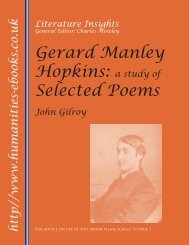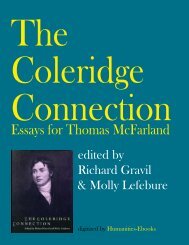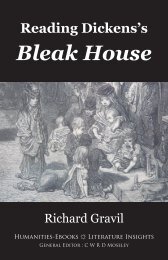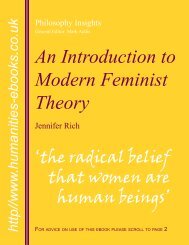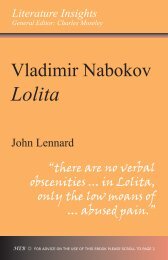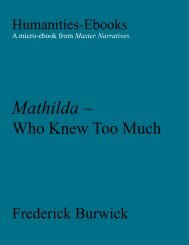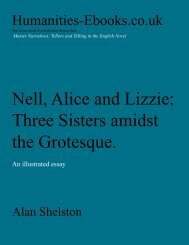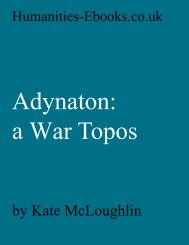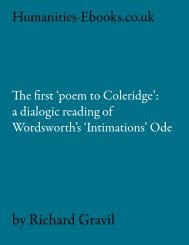Oliver Cromwell - Humanities-Ebooks
Oliver Cromwell - Humanities-Ebooks
Oliver Cromwell - Humanities-Ebooks
You also want an ePaper? Increase the reach of your titles
YUMPU automatically turns print PDFs into web optimized ePapers that Google loves.
Part 1 <strong>Oliver</strong> <strong>Cromwell</strong>: Career Outline<br />
Chapter 1 From country gentleman to political general,<br />
1599–1646<br />
1.1 Introduction<br />
Three and a half centuries after his death, <strong>Oliver</strong> <strong>Cromwell</strong> continues to fascinate<br />
both academic historians and the wider public. It was a tribute to his enduring hold<br />
on the popular imagination that he reached tenth place in the BBC poll for the title of<br />
‘Greatest Briton’ in 2002. This came shortly after the four hundredth anniversary of<br />
<strong>Cromwell</strong>’s birth in 1999, which was commemorated by a number of events, including<br />
major exhibitions at the Museum of London and in Cambridge. He has been the<br />
subject of a number of television documentaries and of at least one major feature<br />
film, <strong>Cromwell</strong> (1970), with Richard Harris in the title role. He is one of a handful of<br />
figures from British history to be commemorated by an organisation dedicated to the<br />
study of his career and legacy: the <strong>Cromwell</strong> Association, which can be located at<br />
www.olivercromwell.org. A museum devoted to <strong>Cromwell</strong> is to be found in his East<br />
Anglian birthplace, Huntingdon; and at nearby Ely, the house that he occupied for a<br />
short time in the 1630s is also open to the public.<br />
Why has <strong>Cromwell</strong> attracted this level of attention? It was in the nineteenth century<br />
that he first began to attain heroic stature, especially after the publication of<br />
Thomas Carlyle’s Letters and Speeches of <strong>Oliver</strong> <strong>Cromwell</strong> in 1845. The leading<br />
Victorian scholar, Samuel Rawson Gardiner, described him as ‘the greatest because<br />
the most typical Englishman of all time’. For historians writing today, however, the<br />
era of Gardiner is perhaps almost as remote as that of <strong>Cromwell</strong> himself. This may<br />
make us less inclined to ascribe to him ‘national’ characteristics capable of application<br />
across the centuries. We may reflect instead on the way in which <strong>Cromwell</strong> embod-<br />
<br />
Christopher Hill, God’s Englishman: <strong>Oliver</strong> <strong>Cromwell</strong> and the English Revolution (London: Pelican<br />
Books, 1972), p. 259.



